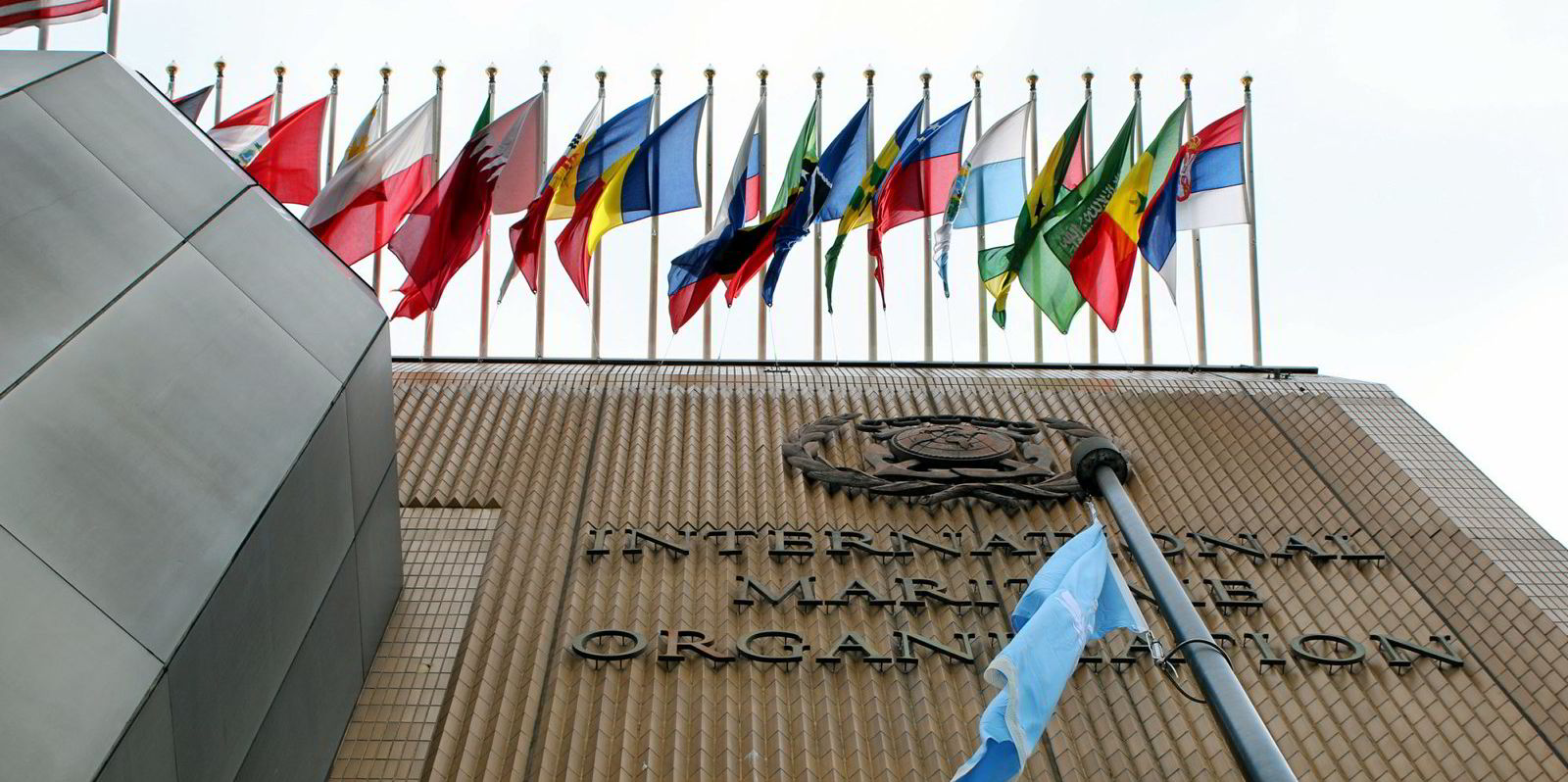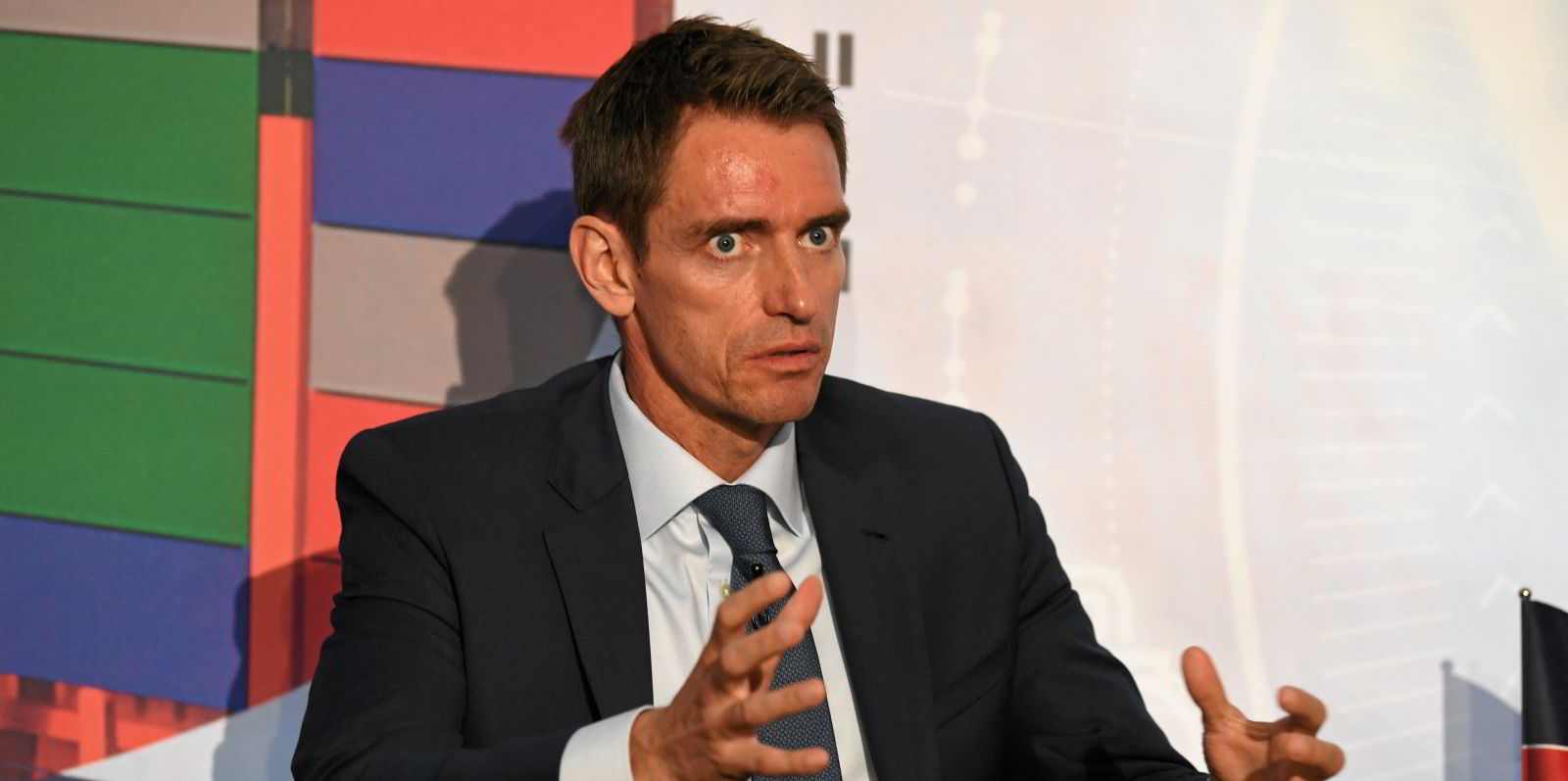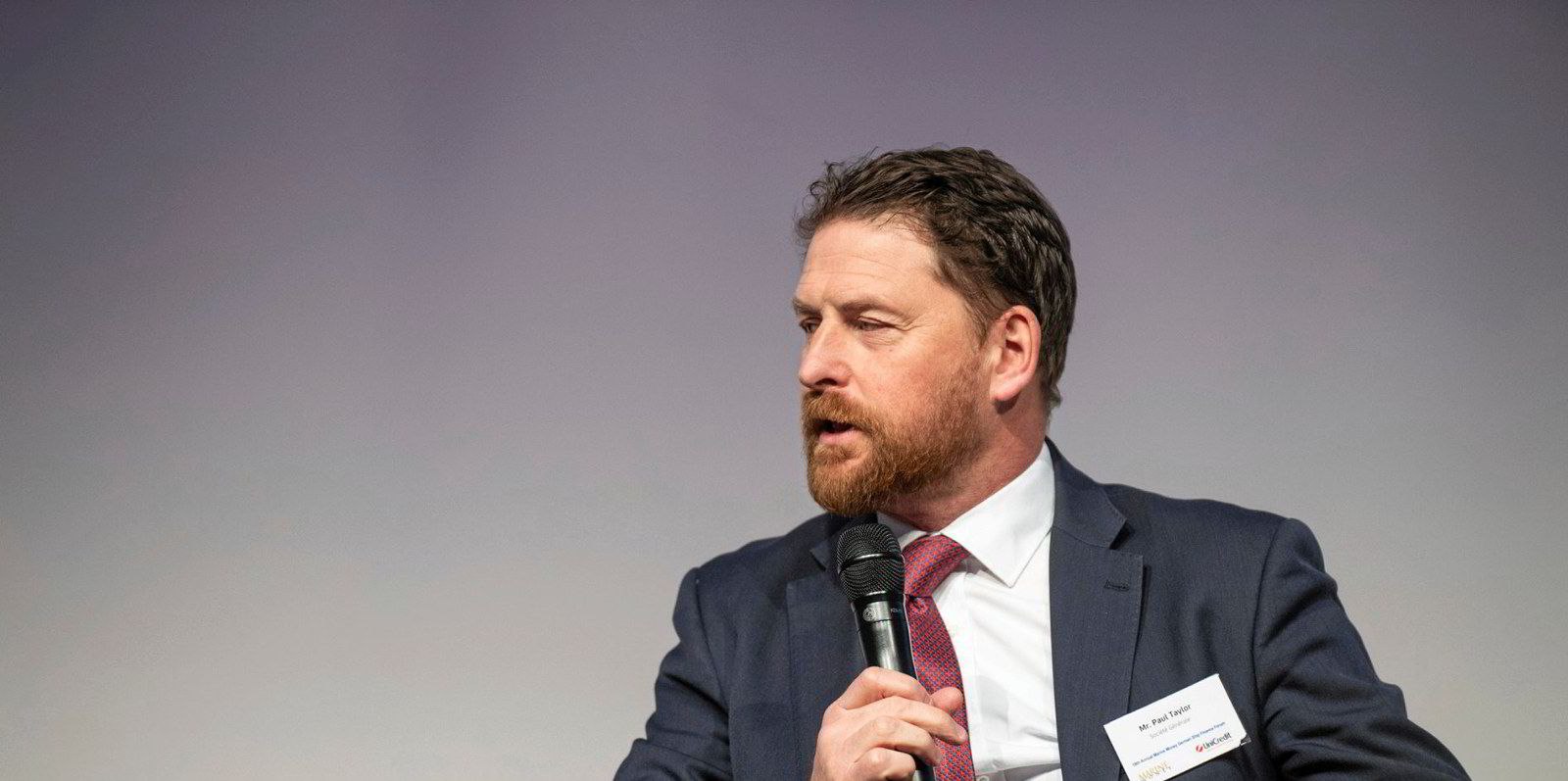One of the world’s biggest charterers has said shipping risks becoming a business that investors will not touch unless regulators act swiftly to impose a global price on carbon emissions.
The tax would need to be at a level that would make new low-carbon fuels competitive.
The senior Trafigura executive said that to help catalyse action, shipowners need to step up immediately and argue for the International Maritime Organization to create a meaningful carbon levy to head off regional moves in Europe and the US.
Rasmus Bach Nielsen, the commodity trader’s global head of fuel decarbonisation, said: “There’s a huge risk for the shipping industry if it does not push this up the agenda.”
He added that “the whole industry will become uninvestable” if an effective market-based measure to incentivise the use of low and zero-carbon fuel is not adopted.
While he admitted to being optimistic of the ultimate outcome, action was needed urgently.
Bach Nielsen was speaking during a webinar held by global law firm Watson Farley & Williams in a follow-up to its recent survey of shipping industry attitudes to environmental and social governance issues, which are facing greater scrutiny.
Real opportunity
Another participant, Societe Generale global head of shipping and offshore Paul Taylor, agreed.
“Rasmus is very right,” he said. “This is really an opportunity.”

The International Chamber of Shipping (ICS) and several other shipping industry groups proposed last year that the IMO charge a $2-per-tonne carbon levy on ship fuel, as part of decarbonisation efforts.
Proceeds from the charge would finance a $5bn research and development fund aimed at pursuing alternative fuels and advanced low-emission technology.
But in his comments, Rasmus Bach Nielsen was damning of the proposal.
“That will be a total drop in the ocean,” he said. “That will not drive a behavioural change for anyone.”
Taylor was one of the team who drew up the Poseidon Principles, which aim to align bank portfolios with IMO carbon-reduction plans.
Charis Plakantonaki, chief strategy officer at Star Bulk Carriers, said collaboration across the industry would be vital to meet the decarbonisation targets.
Bach Nielsen said shipowner organisations such as the International Chamber of Shipping (ICS), Intertanko and Bimco needed to step-up their lobbying on the issue.
Currently, he said they are “not pushing [the] IMO hard enough” and are opening the way to “very dangerous” risks of shipping being dragged into regional measures in Europe and the US.
Trafigura has been taking an increasingly assertive line in the decarbonisation debate. Last year, it presented its own plan for a meaningful carbon-pricing mechanism.
The trader recently signed a joint letter with green group Transport & Environment and three shipowners urging the European Commission to back ammonia and hydrogen as future fuels.
Trafigura, which has between 200 and 300 ships on charter on any given day, said the industry was simply "not doing enough" to keep up with fast-increasing investor demands for decarbonisation and wider social pressure to address the climate crisis.
Sums don't add up
Technology firm MAN Energy Solutions expects ammonia-fuelled engines that are able to power deepsea ships to be available by the final quarter of 2024. But Bach Nielsen said the economics of using non-carbon fuel simply did not add up.
For example, the off-take price for a 10-year forward fuel supply contract for green ammonia made from hydrogen extracted with solar or wind-generated electricity is assessed at €450 to €500 per tonne.
That is similar to today’s carbon bunker fuel price. But factoring in that the green fuel has 2.2 times less calorific value means the price per power output would be more than double.
"No one is capable of justifying paying for that level today," he said.





